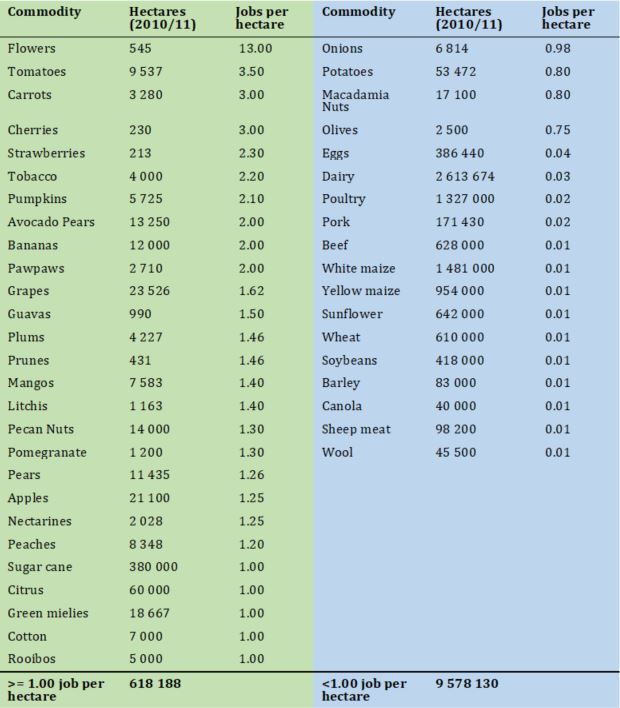South Africa has a major opportunity in high-value agriculture
If there is one industry where South Africa is poised to once again be a world-leader; its agriculture.
If there is one industry where South Africa is poised to once again be a world-leader; its agriculture.
There is not only a rich heritage in South Africa of innovation in agriculture, but as a country we are blessed with the right environmental and labour conditions to really thrive once again in this area.
The problem is that much of our large-scale agriculture is focused on producing commodity crops that have low levels of labour demand and command very low margin for the producers.
There is however an increasing dialogue around high-value agriculture - which is both labour intensive and export-orientated.
In amongst the many changes in the political and social dimensions surrounding agriculture in South Africa something critical has been largely overlooked - agricultural products that are ripe for value-added processing and carry a higher-than-normal exportability quotient [which as you know we are very keen on].

In a brilliant piece of research, that was published on the website Econ3x3 and written by Dr Nimrod Zalk, who is an Industrial Development Advisor in the Office of the Director-General at the Department of Trade and Industry; the opportunity is carefully outlined:
'The right-hand side of Table 1 reflects the continued dominance of land-intensive (and generally capital-intensive) field crops and livestock in the past two decades. In 2010/11 almost 10 million hectares of cultivated land produced commodities employing 1 or fewer people per hectare. Indeed, of these, 9 million hectares employ (in weighted average terms) only 0.02 workers per hectare: dairy, white maize, poultry, yellow maize, sunflower, beef, wheat, soybeans, eggs, pork, sheep meat, barley, wool and canola.'
'Conversely, the left-hand side of Table 1 shows that 0.6 million hectares of land was used to produce commodities employing one or more people per hectare. These products are 80 times or more labour intensive than most field crops and livestock. They mostly comprise deciduous and citrus fruit, fresh vegetables, berries and nuts. This factor rises to 160 times for the most labour-intensive products: papaws, bananas, avocados, pumpkins, tobacco, strawberries, cherries, tomatoes and flowers.'
'The Bureau for Food and Agricultural Policy (BFAP) estimates that around 200 000 jobs could be created mainly through expanding the production of the export-oriented high-value products in the left-hand column of Table 1. This would expand the current agricultural employment by almost 25%. The largest tracts of potentially arable land lie in the former homeland areas – where unemployment and poverty are most endemic – particularly the Eastern Cape, Limpopo, the Northwest and parts of KwaZulu-Natal. The multiplier effect on up- and downstream manufacturing and service industries could create an additional 100 000 jobs.' - continue reading 'Hiding in plain sight: high-value agriculture’s large-scale potential to grow jobs and exports' by Nimrod Zalk.
There is no doubt that agriculture is an area in which South Africa carries an enviable opportunity to grow. What is needed is some fresh thinking in the space to reignite the industry and start building strong brands in the space.
Personally I would love to somehow see how I could get involved here - so if there are farmers / producers looking for an innovation facilitator to redesign your value chain and critically evaluate and repurpose your brand assets to exponentially leverage your current business - give me a shout.
Access the full report, that this post was inspired by, here.

